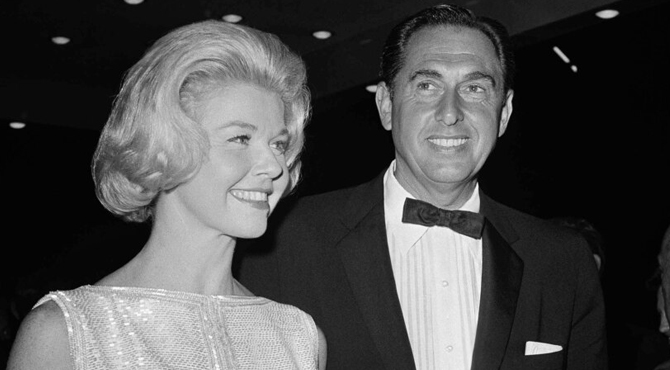Singer and actress Doris Day, whose films and smooth jazz and pop style made her a Hollywood legend, died Monday at her home in Carmel Valley, California. She was 97.
Her Doris Day Animal League announced her death, saying she had been in excellent health but recently came down with pneumonia.

With her blonde freckle-faced good looks and silky voice, Day’s image was of a fun-loving girl-next-door.
She once described herself as having “the unfortunate reputation of being miss goody two-shoes, America’s virgin, and all that.”
But her life away from the cameras was one of heart break, abusive marriages, and financial ruin.
Day was born in Cincinnati and began singing on local radio, in nightclubs, and eventually in New York, where she became a star with bandleader Les Brown.
Her version of Brown’s theme song “Sentimental Journey” became a huge hit, followed by a number of top-selling records.
Day moved to Hollywood, starred on network radio, and became a fixture in Hollywood musicals.

Her series of light sex comedies and bedroom farces, including “Pillow Talk,” “The Thrill of It All,” and “The Glass-Bottom Boat,” made Day Hollywood’s top money-making star in the early 1960s.
She also proved to be a superb dramatic actress — playing the victim of a stalker in the suspenseful “Midnight Lace” and the mother of a kidnapped child in the Hitchcock thriller “The Man Who Knew Too Much,” where she introduced her theme song “Que Sera Sera.”
Day discovered her third husband lost tens of millions of dollars of her show business fortune, leaving her broke and in debt. She reluctantly starred in a television situation comedy from 1968 to 1973 to recoup some of those losses.

Day gradually retired from show business to start a California-based animal protection charity in 1987, The Doris Day Animal League, which lobbied strongly for federal laws protecting animals from abuse, torture, and unnecessary scientific research.










